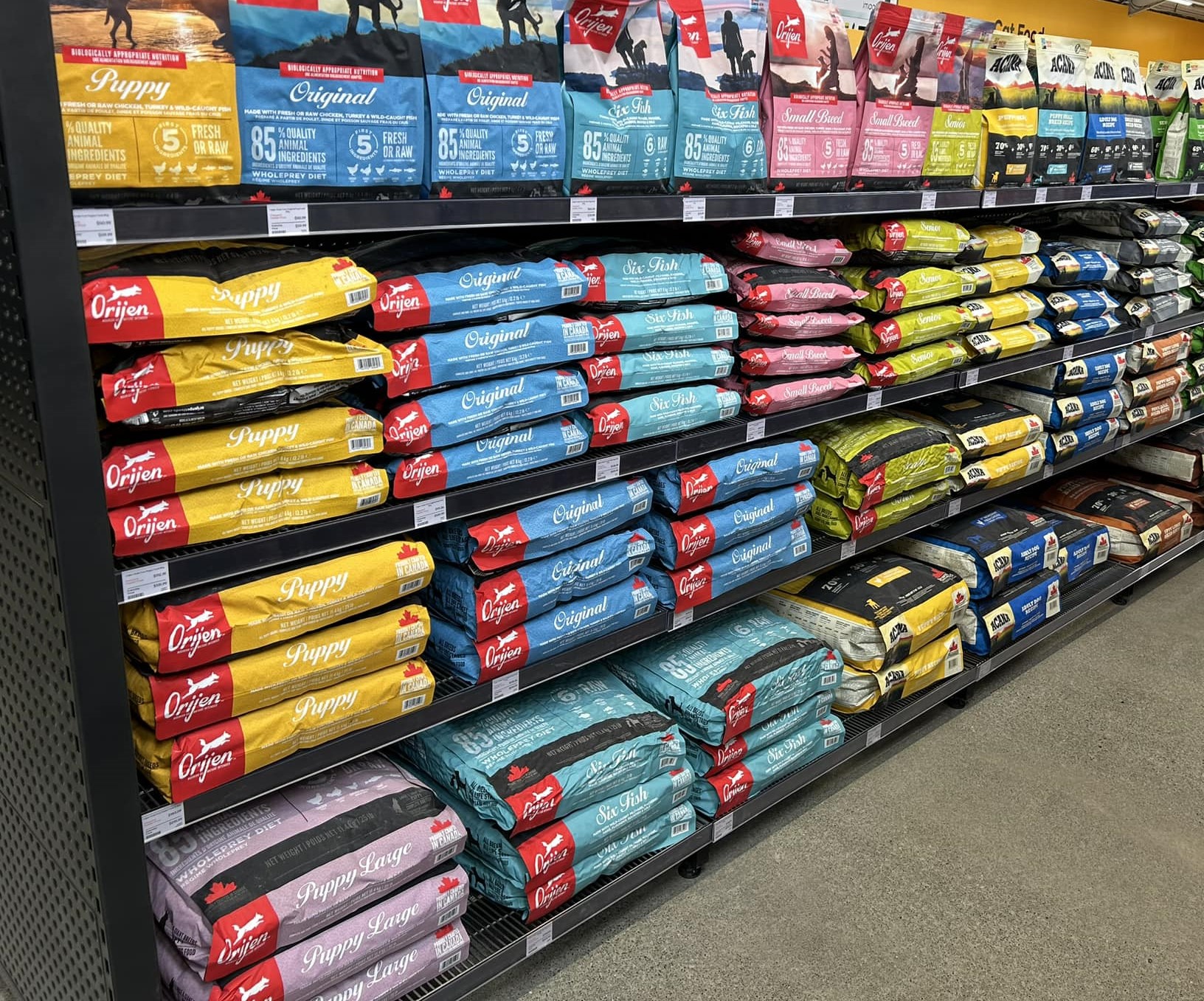NUTRITION GUIDE FOR SMALL BREED DOGS & PUPPIES
All dogs have the same physiology and their bodies are meant to consume protein-rich, primarily meat-based diets. However, small breed dogs and puppies do have additional requirements to support their specific needs that large breed dogs simply don’t.
Why do small breed dogs and puppies require different nutrition?
Small dogs generally have a higher metabolic rate than large dogs, meaning they use up the energy that food provides much quicker. This is why a dog food diet high in fat and protein is appropriate for a small breed, but not for a large breed that would require more time to burn through those calories. Smaller dogs, proportionally, have a shorter large intestinal tract than large dogs do, so their food should be crafted to be higher in protein and calories because they get a reduced chance to digest and utilize nutrients. Small breed dogs, especially mini or toy breeds, also have smaller mouths, which can make typical dry kibble difficult to crunch into smaller bite-sized pieces before swallowing—remember, dogs don’t “chew” their food the same way humans do. Kibble that is sized appropriately for small breeds is an important factor to take into consideration when selecting a food for a small dog.
Puppies, like small breed dogs, thrive on a diet that’s high in fat and protein to support the huge growth they experience in their first year of life. Large breed puppies specifically require a diet that contains an appropriate amount of minerals, like calcium and phosphorus, that will promote a slow and steady growth. In contrast, small breed puppies mature faster and they also have a lower bone mineral density compared to larger dogs so they need a different calcium phosphorus ratio than a large breed puppy.
What to look for in small breed and puppy diets.
Pay close attention to the ingredients listed on the ingredient panel of the dog food you are considering. The first few ingredients are what makes up much of the food, so look for dog food where animal ingredients are listed first. ORIJEN® & ACANA® pet foods always feature premium animal sources in at least the first two ingredients of every bag.
Also, pay attention to the protein content of your dog’s food. Some pet foods claim to be high-protein, but it’s the quality of the protein that really matters, so make sure the food is high in animal-derived protein, which is the most appropriate type for dogs.
Lastly, look for signs on the packaging that the food is formulated for the life stage or size of the dog. Formulas specifically aimed at puppies, like ACANA® Puppy Small Breed will typically feature a higher fat content to support appropriate and healthy growth, and small breed formulas like Orijen® Small Breed and ACANA® Adult Small Breed Recipe will usually have the added benefit of a smaller kibble size.
By following these tips and feeding a complete and balanced diet according to their life stage and size, you’re supporting a long, happy and healthy life for your small breed dog or puppy.

Dr. Darcia Kostiuk is the senior veterinarian behind ACANA pet foods. She has over 20 years of veterinary experience and is the
proud pet parent of Max, Ruby, Jinxi and Ember. Content sourced from
ACANA Website
with the additional inclusion of Orijen Small Breed.
.jpeg)



-Alexe-Sersi-and-Crunchy5.jpg)